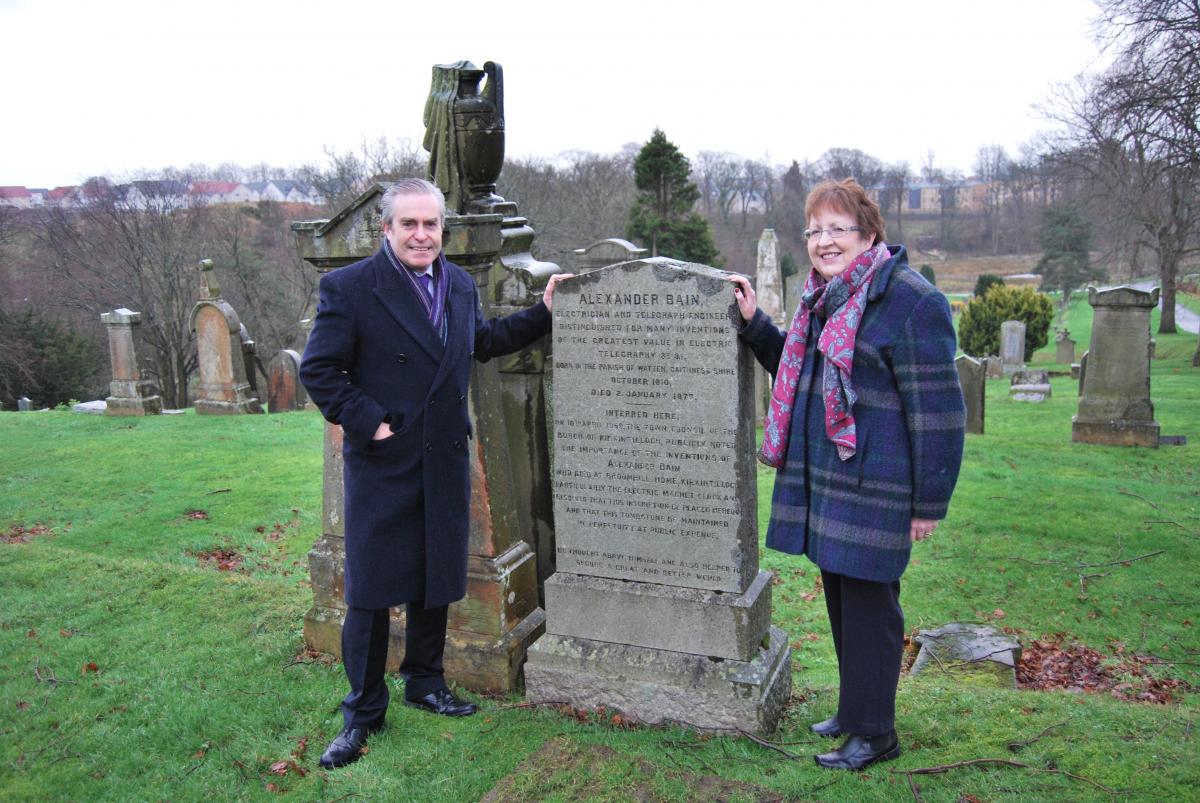East Dunbartonshire is soon to be home to a prestigious Emmy award after it was announced that a little known Scottish inventor is set to be posthumously honoured for his pioneering work in image transmission that was later utilised by the developers of television.
Alexander Bain (1810-1877), who died and is buried in Kirkintilloch, will be awarded a Technology and Engineering Emmy Award, given by The National Academy of Television Arts & Sciences (NATAS) for outstanding achievement in technical or engineering development, in recognition of inventing the concept of scanning for image transmission.
Bain's achievements include the invention of the electric clock and important contributions to the electric telegraph, however he is now known worldwide as the inventor of the facsimile machine, which he patented in 1843.
This early form of image transmission combined elements of electric clocks and telegraphs but the breakthrough was the concept of scanning an image and then transmitting it so it could be reproduced elsewhere. It was the first time that an image was ever transmitted from one location to another and introduced the concepts of scan lines, pixels and frame and line synchronisation used in all modern television systems.
Bain's accomplishments will be recognised at the 67th Annual Technology & Engineering Emmy Awards in the Bellagio Hotel in Las Vegas on Friday 8 January.
East Dunbartonshire Council, who maintain Bain's gravestone in the Old Aisle Cemetery in Kirkintilloch, has been chosen as custodian of the award and arrangements are now being made to have the Emmy delivered to Scotland.
Council Leader Rhondda Geekie said, "It is a huge honour to be asked to accept the Technical and Engineering Emmy Award. Without the accomplishments of Alexander Bain we wouldn't have television world-wide.
"Our predecessors in the Town Council of the Burgh of Kirkintilloch, where Bain died and was buried in 1877, publicly noted the importance of the inventions of Bain and pledged in 1959 that this headstone be maintained in perpetuity.
"They added an inscription to the headstone, which seems very fitting when honouring him - 'He thought above himself and also helped to secure a great and better world'.
"Bain may have had to wait over 170 years for his achievements to be honoured but the Emmy will be a source of great pride for the people of East Dunbartonshire, and Scotland as a whole. The Council will ensure it goes on public display in the hope that this prestigious award will help bring the innovative work of Bain to the attention of a new generation of budding young engineers and help inspire them to 'secure a great and better world'."
Kirkintilloch and District Society of Antiquaries played a key role in ensuring the Emmy was awarded to Bain and President Ivan Ruddock wrote an article in 2012 exploring the link between Bain and the fundamentals of television.
Dr Ruddock added, "Alexander Bain invented the electric clock and made important contributions to electric telegraphy, but it is for his invention of facsimile transmission in 1843 that he deserves to be remembered and honoured by the award of an Emmy.
"It involved the concepts of image scanning, transmission and reconstruction, which are the basis of television, and all modern forms of image recording, storage and distribution, and he was the first person to take this inventive step.
"The people of Kirkintilloch are justly proud of its connection with Alexander Bain and the Emmy will be a tangible representation of his importance for years to come."
Dr Ruddock and Cllr Geekie are pictured at the grave of Mr Bain.
Follow us on Twitter @EDCouncil or like us on Facebook